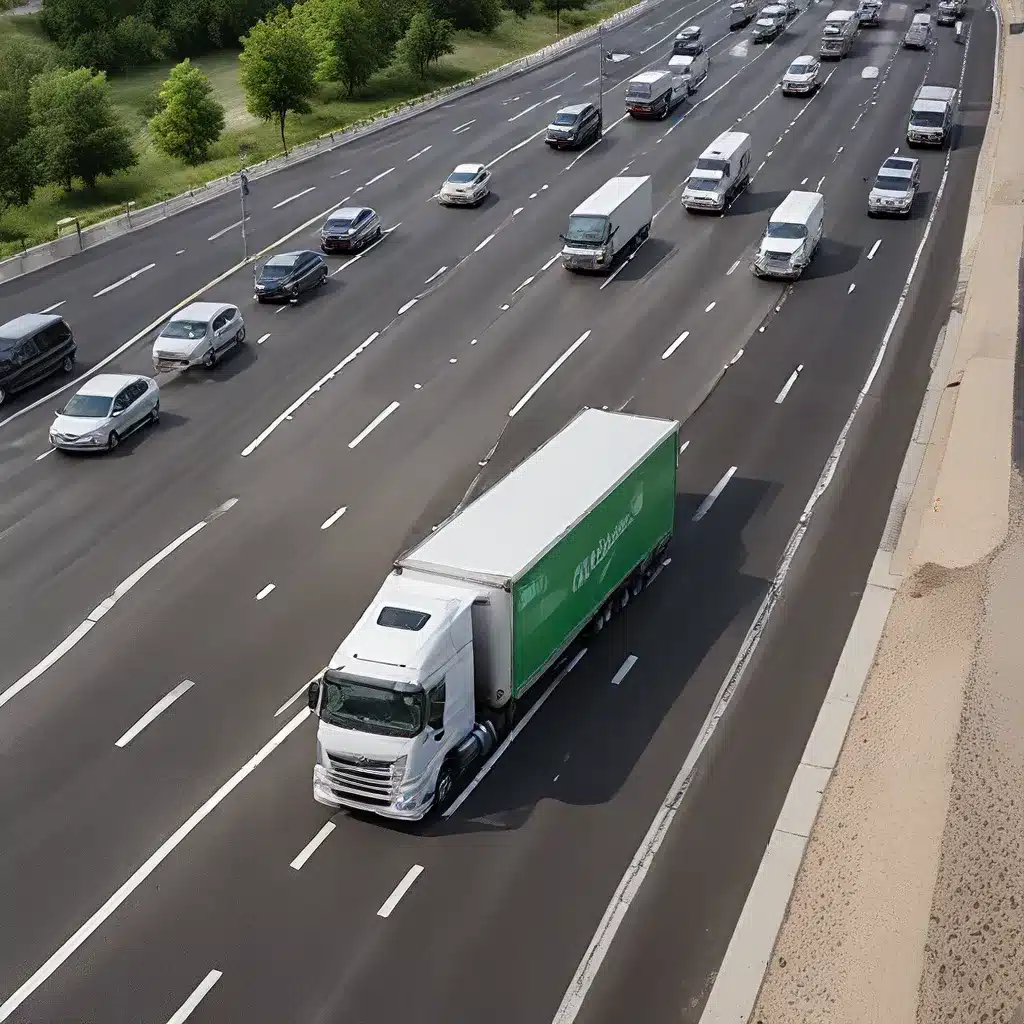
In the rapidly evolving transportation landscape, the role of sensor networks and Internet of Things (IoT) technologies has become increasingly pivotal in transforming the way fleets are managed. From enhancing operational efficiency and optimizing asset utilization to promoting environmental sustainability, these cutting-edge technologies are revolutionizing the fleet management industry.
Unlocking the Power of Sensor Networks in Fleet Management
Sensor networks have emerged as the backbone of modern fleet management, providing a wealth of real-time data that empowers organizations to make informed decisions and optimize their operations. These interconnected systems of sensors, embedded in vehicles and supported by advanced telematics, offer a comprehensive view of fleet performance, enabling fleet managers to address a multitude of challenges.
Predictive Maintenance: Preventing Breakdowns Before They Occur
One of the most significant advantages of sensor networks in fleet management is their ability to facilitate predictive maintenance. By continuously monitoring various vehicle parameters, such as engine health, tire pressure, and fuel consumption, these systems can identify potential issues before they escalate into costly breakdowns. This proactive approach not only minimizes downtime but also extends the lifespan of fleet vehicles, ensuring optimal performance and reliability.
Enhanced Fleet Visibility and Tracking
Sensor networks, in conjunction with Global Positioning System (GPS) technology, provide fleet managers with unprecedented visibility into the location and status of their vehicles. This real-time tracking empowers them to monitor delivery timelines, prevent theft, and optimize resource allocation by dispatching the closest available vehicle to a task. This heightened transparency and responsiveness lead to improved customer satisfaction and enhanced operational efficiency.
Intelligent Route Optimization
By analyzing data from vehicle sensors, traffic conditions, and weather patterns, sensor-driven fleet management systems can recommend the most efficient routes, taking into account factors such as travel time, fuel consumption, and environmental impact. This optimization process not only reduces fuel costs but also lowers greenhouse gas emissions, contributing to a more sustainable transportation ecosystem.
Driver Behavior Monitoring and Coaching
Sensor networks, coupled with computer vision and machine learning algorithms, enable the monitoring of driver behavior in real-time. By detecting signs of fatigue, distraction, or aggressive driving, these systems can provide immediate feedback to drivers, encouraging safer practices and reducing the risk of accidents. This proactive approach to driver safety is a game-changer, enhancing the overall well-being of both the fleet and the public.
Integrating IoT for Comprehensive Fleet Management
The Internet of Things (IoT) has further amplified the capabilities of sensor-driven fleet management, enabling seamless connectivity and data-driven decision-making. By integrating IoT technologies, organizations can unlock a broader range of benefits and streamline their fleet operations.
Connected Vehicles and Intelligent Coordination
IoT-enabled connected vehicles can communicate with each other and the broader transportation infrastructure, exchanging real-time information on traffic conditions, road hazards, and even potential accidents. This vehicle-to-vehicle (V2V) and vehicle-to-infrastructure (V2I) communication, powered by advanced artificial intelligence (AI) and machine learning (ML) algorithms, can enhance route planning, improve safety, and mitigate congestion.
Integrated Fleet Management Platforms
IoT integration also enables the development of comprehensive fleet management platforms that consolidate data from various sources, including telematics, driver logs, and maintenance records. These platforms leverage Application Programming Interfaces (APIs) to seamlessly integrate with third-party systems, providing fleet managers with a centralized dashboard for monitoring and decision-making. This holistic approach streamlines operations, enhances visibility, and supports data-driven strategic planning.
Enhancing Sustainability and Environmental Impact
IoT-enabled fleet management solutions play a crucial role in promoting environmental sustainability. By monitoring vehicle performance, fuel consumption, and emissions, these systems can identify opportunities for improvement, such as optimizing routes, encouraging eco-friendly driving behaviors, and transitioning to alternative-fuel vehicles. The integration of IoT and AI/ML empowers fleet managers to make data-driven decisions that reduce the carbon footprint of their operations, aligning with global sustainability goals.
Addressing Challenges and Ensuring Secure Fleet Management
As the adoption of sensor networks and IoT technologies in fleet management continues to grow, it is essential to address the accompanying challenges and ensure the security of these systems.
Cybersecurity Considerations
The increasing connectivity of fleet management systems heightens the risk of cyber threats, such as data breaches, unauthorized access, and potential hijacking of vehicles. Fleet managers must prioritize the implementation of robust cybersecurity measures, including encryption, access controls, and regular system updates, to safeguard sensitive data and maintain operational integrity.
Data Privacy and Regulatory Compliance
The collection and utilization of fleet data are subject to various data privacy regulations, such as the General Data Protection Regulation (GDPR) and the California Consumer Privacy Act (CCPA). Fleet management organizations must ensure compliance with these regulations, implementing appropriate data handling protocols and obtaining necessary permissions to protect the privacy of drivers and customers.
Scalability and Adaptability
As fleets grow and evolve, the underlying sensor network and IoT infrastructure must be scalable and adaptable to accommodate changing operational needs. Fleet managers should seek solutions that offer seamless expandability and the ability to integrate new technologies, ensuring that their fleet management systems remain relevant and efficient in the long run.
Embracing the Future of Sensor-Driven Fleet Management
The integration of sensor networks and IoT technologies in fleet management has ushered in a new era of operational efficiency, enhanced safety, and environmental sustainability. By leveraging the wealth of data generated by these advanced systems, fleet managers can make informed decisions, optimize resource allocation, and drive continuous improvement.
As we look to the future, the synergy between human expertise and artificial intelligence will further elevate the capabilities of sensor-driven fleet management. The Sensor Networks platform serves as a hub for exploring the latest advancements in this dynamic field, empowering organizations to stay at the forefront of innovation and position themselves as leaders in the transportation industry.
By embracing the transformative power of sensor networks and IoT, fleet management organizations can unlock unprecedented levels of efficiency, safety, and environmental responsibility, paving the way for a more sustainable and connected future.